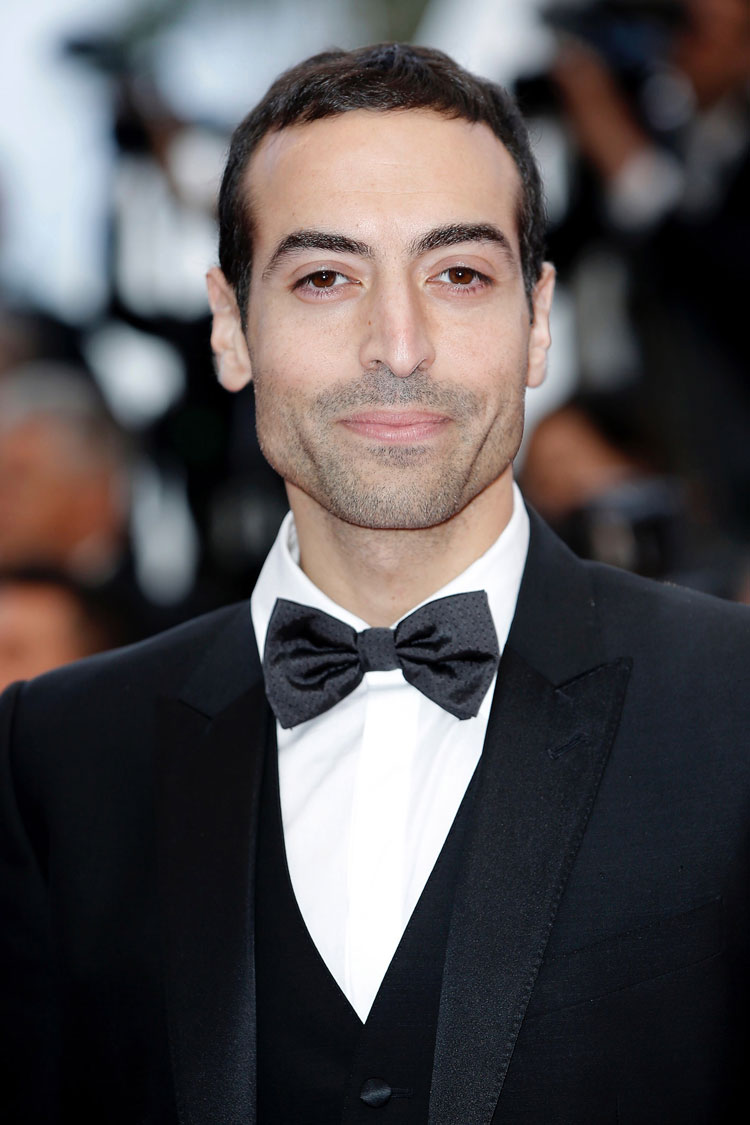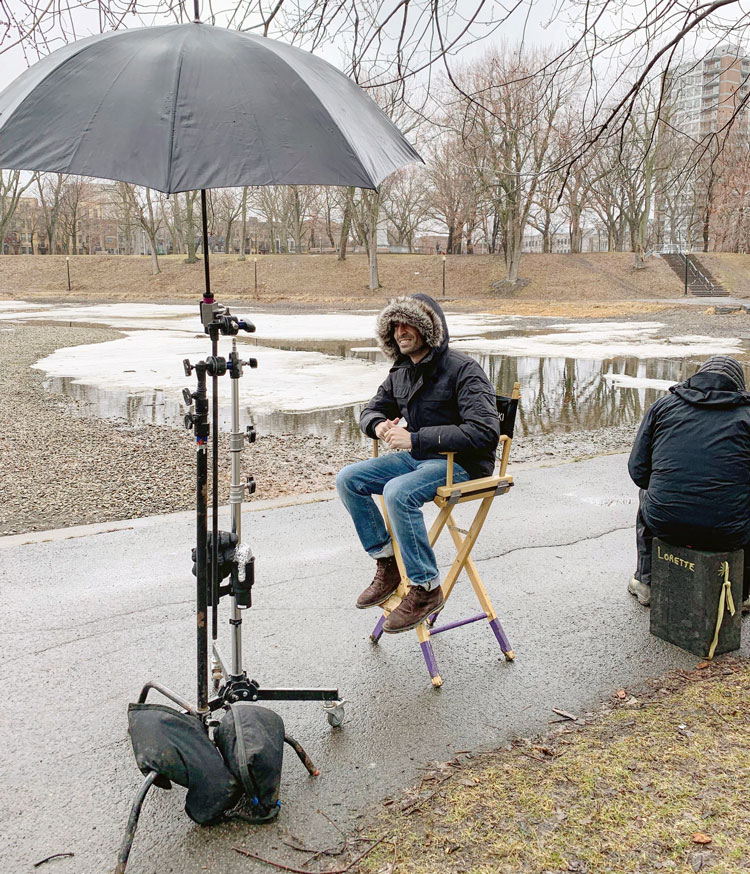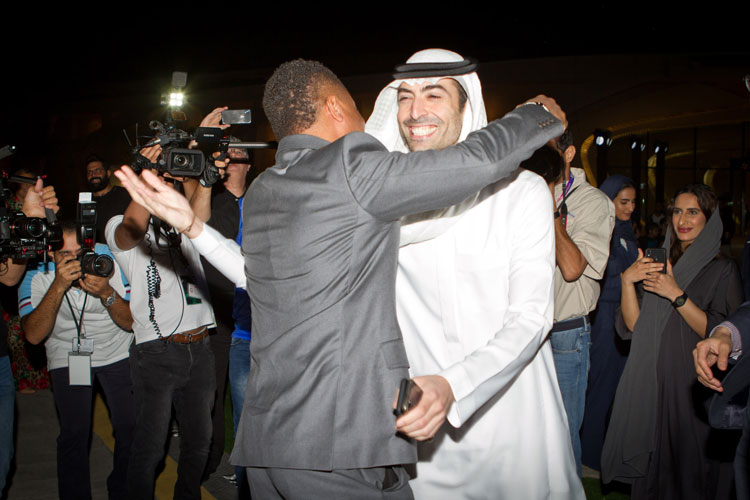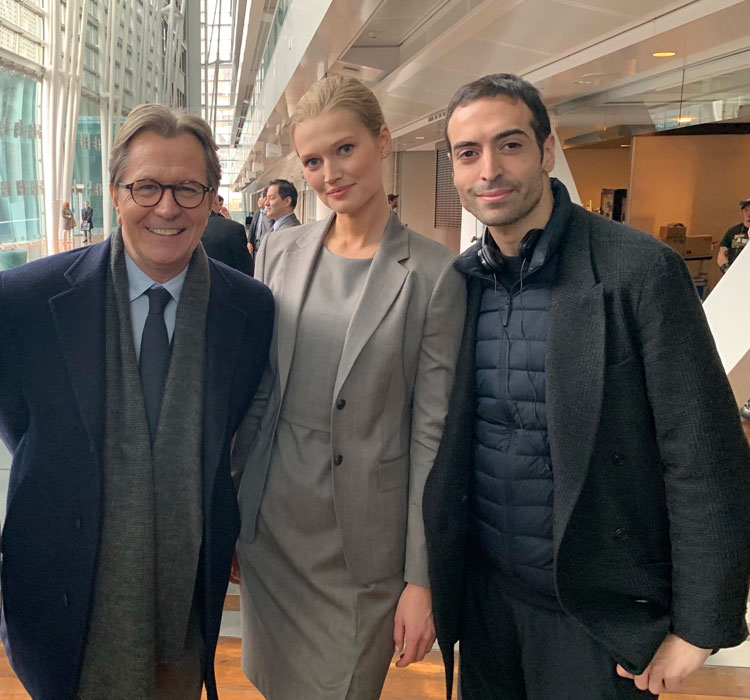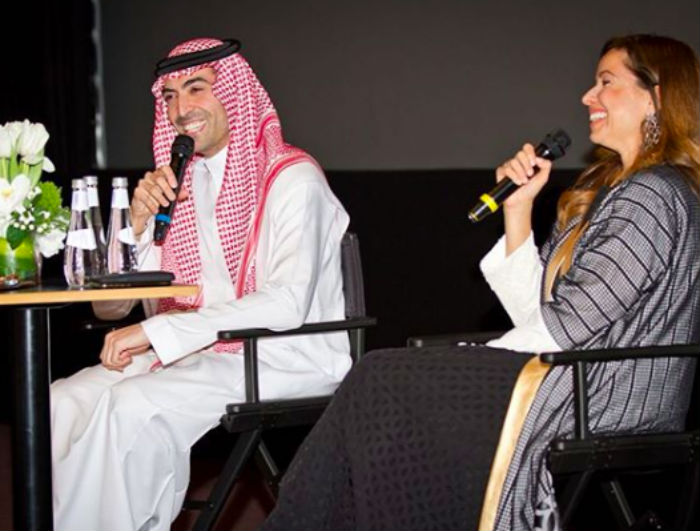Mohammed Al Turki – often nicknamed as Mo Turki – is the man of the moment in the world of movies. A&E speaks to the Saudi Arabian Film Producer about the progress and future of cinema.
Saudi Arabian Film Producer Mohammed Al Turki broke onto the international film scene in 2010 with the release of The Imperialists Are Still Alive!, a movie he was the executive producer on. He has since gone on to work on films such as Arbitrage starring Richard Gere, 99 Homes and Time out Of Mind.
He regularly rubs shoulders with the who’s who of Hollywood and is going to strength to strength in his career, currently working on a movie starring actor Armie Hammer.
But it hasn’t always been an easy ride for Al Turki. Born and raised in Saudi Arabia, a country that only recently lifted its ban on cinema, he was in the minority when he decided to take on a career in film producing.
But Al Turki indulged in his passion for film from a young age, seeing as many movies as possible while in London over the summer, and packing his suitcase full of DVDs when he travelled back to his home country.
Today, Al Turki is inspiring an entire generation of young Saudi Arabians to follow their passion for film – something he takes very seriously, he tells A&E when we sitting down with him on a recent visit to Dubai just before he jets off to Saudi Arabia’s first ever film festival.
How do you think you are inspiring others from your home country with what you do?
Well, I hope I’m inspiring others from my home country! When I started doing film cinemas were banned in Saudi Arabia. The ban lift happened about a year ago. I chose a profession that I completely believed in. I love the form of film, the art form of creating content and sharing stories to the world. When I chose to do film people back home had questions about it. But I soon realised that I had established a following.
A few years into my career I was giving a talk at the New York Film Academy and about 80 per cent of the audience were Saudi students. The moderator told me that 6,000 students had registered to study film and this was before cinema was permitted in Saudi so I realised then that this was a huge thing. A few people have told me and people have commented on my Instagram saying “we saw that you chose the path to go into film and we thought ‘if you can do it we can do it’.” It’s a huge responsibility but I hope that I can help in the future.
What inspired you to choose a career in film?
I always loved film, it was a big part of my life growing up. I watched so many films with my dad and my mother. Whenever we had a chance to go to London we would buy a magazine and highlight the movies we wanted to see. It became a thing that in the summer we had to watch as many movies as we could before going back home. We would go to the stores and buy boxsets and videos to bring back to Saudi.
How do you think your work contributes to the industry in Saudi Arabia?
I’m actually flying to Saudi for the opening of the Saudi Film Festival which is being backed by the government. I’m participating in a talk called Journey in Hollywood. When the festival contacted me originally it was supposed to be a small talk for around 60 people and then they contacted me again to tell me there was a large interest from participants and the talk would be in front of 300 people instead. So this is really exciting especially as it is being supported by the government. The cinema industry in Saudi and the GCC is relatively new, but in terms of Saudis, I think there are individuals who have really excelled.
We have a few examples including Dina Shihabi who is an actress in the show Jack Ryan. We also have Saudi Director Haifaa al-Mansour who has won multiple awards and was a jury member at Cannes Film Festival which as a Saudi woman is a big achievement. I feel like she is our Saudi pride. There is also the actress Ahd Kame who starred in the show Collateral with Carrie Mulligan. So I feel like, in just a few years, these are people who have crossed over and been a perfect example for the industry.
With lots of changes and cinemas now open in Saudi Arabia what are your thoughts on where the industry is going?
The industry is changing because there is a lot of push and investment in the entertainment and art world. A lot of things have been happening this past year that I had never imagined would happen in Saudi Arabia. We have a lot of musical performances, an opera house was just built in Riyadh, the government has permitted the opening a school of music and they honoured big Arab legendary musicians to participate and be part of the school.
Other than that we have concerts, we recently had Mariah Carey perform there. There is a concert with Akon and French Montana. It’s really changing fast. They have also introduced something that we didn’t have in Saudi before and that’s the prime dining experience. We have always had a lot of nice restaurants but never this prime dining experience. In Riyadh, they have opened venues like Cipriani and Nozomi for example and we are also having pop-ups all around Saudi. It’s really exciting.
What can you tell us about your new movie?
I’m working on a film called Dreamland. It sheds light on the Opioid crisis, which is the second largest cause of death in America. I think it’s really important to work on movies with a social conscious. My motive in movies is to shed light on issues that people in the world are going through today. In 2012 I worked on a movie called Arbitrage starring Richard Gere. That movie was in the aftermath of the financial crisis.
After that I worked on 99 Homes, this was at the aftermath of the housing crisis in Florida. Then I worked on another movie with Richard Gere called Time out of Mind which also sheds light on the homeless community. So for me, I love working on films that don’t just entertain but also have a message. I want the viewers to go home and think about what they’ve watched.
What do you consider your biggest achievement to date?
On a personal note, maybe surviving my twenties! And being content with myself and finding my inner peace. I feel like when you’re in your twenties you struggle to find your identity and to know who you are and fight your insecurities. But I feel that when you’re in your thirties, for me it’s a complete night and day comparison to when I was in my twenties.
My biggest achievement in terms of film, which I always pinch myself about because it’s very surreal, is that two of the films that I’ve worked on were nominated for Golden Globes. My goal is to hopefully get an Oscar nomination, that’s something that I would like to achieve, but also in terms of Arabic cinema and Arabs in Hollywood, this year was a very important year.
I attended the Oscar after parties, but just to be there this year having Egyptian-American actor Rami Malek winning the Oscar and talking in his speech about how important it was to him that he was the son of an immigrant moving to the United States and talking about his background that was incredible. Also, Lebanese director Nadine Labaki was nominated for her film Capernaum, which just shows you that there are incredibly talented people from The Middle East, and me being there as a Saudi made me very happy.
What has been the biggest challenge?
There are many challenges! But I think the biggest challenge is a personal thing and it’s a characteristic I’ve worked on for many years to change and that is being impatient!
Who is the person that inspires you the most?
A lot of people inspired me but I think it really comes close to home, my mother and father inspire me a lot.
What’s your personal motto?
It’s changed throughout the years, to be honest, but I feel like nothing is impossible and my most personal motto is “tomorrow is a new day,” so if you’re having the worst day, work-wise, relationship-wise, financially wise, there’s nothing you can do, sleep on it and tomorrow is a new day.
And your professional motto?
Be persistent, even though sometimes it can come across as annoying!
If you could give your younger self one piece of advice, what would it be?
Honestly, I would not give my younger self a piece of advice. I believe everything happens for a reason and everything I went through, good or bad, has made me the person I am today. Having said that I would not want to live through my twenties again!
What would you tell yourself ten years from now?
Well let’s go this way – ten years ago I would not have imagined being where I am today, so I’m sure ten years later I would be surprised with what’s going to happen. I’ve also realised that when I was younger I kept on talking about the future like it was a long time ahead, but it really does go very quickly. It’s crazy how time flies.
How would you describe your personal style?
My personal style is classic. I love wearing clothes that are plain. But also my style has evolved with age. When I was younger I used to love ripped jeans and more brand orientated outfits. Throughout the years I got rid of anything that had a logo. I also love a lot of comfortable fabrics – soft cotton, linens.
When it comes to my relationship with style, I have to give credit to my father and my late uncle. Growing up, me and my brothers and sisters used to call my late uncle “The Don” because he used to always wear a three-piece suit – it was so chic, he and my father looked like they had walked in from the set of The Godfather! So when I dress for red carpet events I always look at that as the way I want to be perceived – classic and very chic and elegant.
What do you say ‘no’ to?
No to me has been very new, it’s been introduced in the last few years as a way to protect myself. I have said yes to a lot of things I shouldn’t have said yes to because I didn’t know how to say no! But now anything that I feel uncomfortable with I would say no.
What book are you reading at the moment?
I’m not reading a book but I am reading a script!
How do you want the world to remember you?
That is a big question but I would like the world to remember me obviously in a positive light. I’m very happy to be a pioneer filmmaker in the region so that’s already something that I’m very happy and humble about. I’m very happy that I’m used as an example.
Even though I’m not an actor I have read in articles people saying that I’m like the Omar Sharif of the new era – no I’m not, but it is an honour to be compared to him! He is a complete legend. I wrote a dedication to him when he passed away that said, “growing up and knowing that someone like him existed pushed me into making my dreams a reality.” An Egyptian actor who has been in movies like Dr Zhivago, Gone in the Wind and Funny Girl it makes him a screen legend, and for him to do it in the fifties and sixties made me realise, if he can do it I could possibly be able to do it. So if that helps in the sense of somebody in Saudi realising that I’m in Hollywood, and I came from Saudi in a small town and I was able to do that, they can too.
READ: Highlights from the Fifth Saudi Film Festival for 2019


